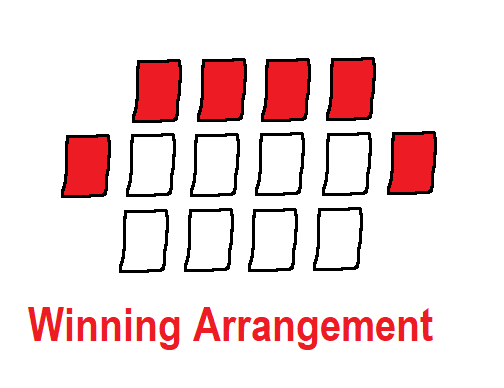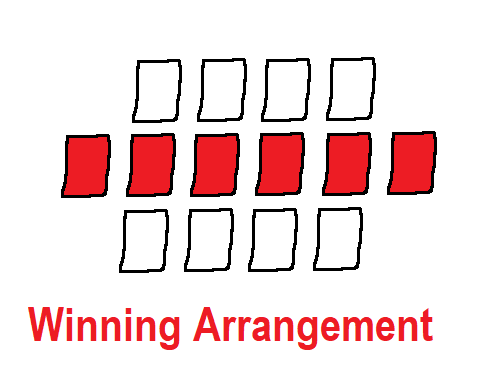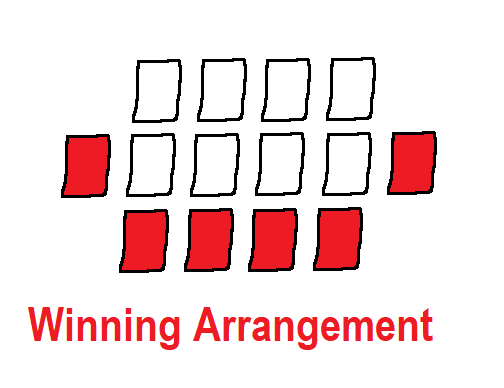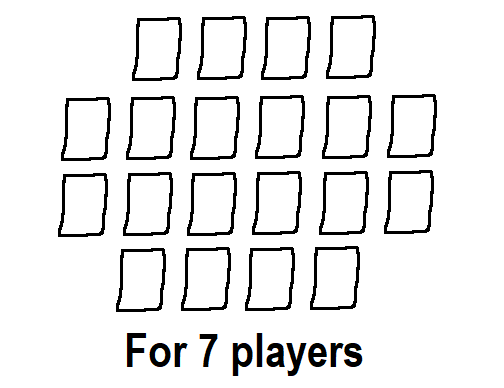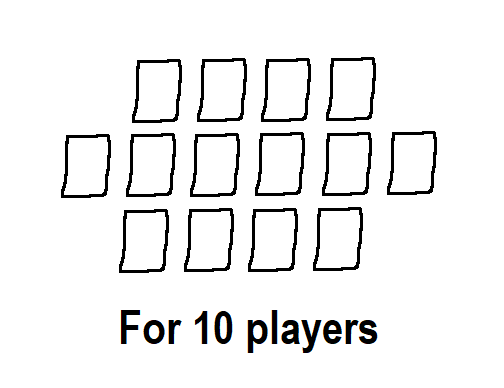This article is INCOMPLETE. You may help by expanding it.
Garafuda [がら札] is a type of karuta belonging to the E-awase karuta family.
The set contains 140 cards, each containing a different illustration. The cards are usually hand-drawn and hand-painted, and are not for sale.
In addition to the set of cards, a bag containing 155 sticks are used, 140 of which contain the name of their corresponding cards, and 15 of which contain only markings.
It is thought that the name garafuda refers to the rattling [がらがら, garagara] of the sticks while the bag is being shaken.
Both the cards and bag of sticks were used to play a lottery game of the same name, which was played in Edo (now Tokyo), Japan during the Edo period.
¶ The Game
The game is played by 7 or 10 players, and has similarities to the game Bingo.
Each player is dealt a specific number of cards, and arrange them in a specific arrangement face-up near them; this becomes their territory.
- If 7 players are playing, each player will be dealt 20 cards, and they must be arranged as follows: Four rows of cards, with four cards on the top row, six cards on the 2nd and 3rd rows, and four cards on the bottom row.
- If 10 players are playing, each player will be dealt 14 cards, and they must be arranged as follows: Three rows of cards, with four cards on the top row, six cards on the middle row, and four cards on the bottom row.
Each player starts with 100 stones/chips.
The first player is determined using any method they prefer.
The bag is shaken well, and the game begins.
During a player’s turn, they draw 5 sticks from the bag, and read each stick one by one. When all sticks are read, turn passes to the next player.
A characteristic of the game is that the name of the card itself (which is written on the stick) is not read; instead, a phrase related to the name of the card is declared.
Each time a stick is read, all players (including the reader) must check the cards in their territory for the corresponding card and flip it face-down.
If among the sticks drawn, there are sticks without names of cards on them, the player is paid stones by the other players:
- 1 of the sticks is marked with a small marking, and is worth 1 stone.
- 14 of the sticks are marked with an elaborate marking, and are worth 2 stones each.
Once a player has flipped their cards in one of several specific configurations, the game ends. That player wins, and is paid 14 stones each by the other players.
The game could be played several times in a row. Since the game is traditionally played as a gambling game, each stone is given a cash equivalent, and the exchange of cash is done after players have played a specific number of games or if players decided to stop playing.
¶ Winning Configurations
Most of these configurations involve flipping 6 cards in a row face-down.
¶ For 7 players
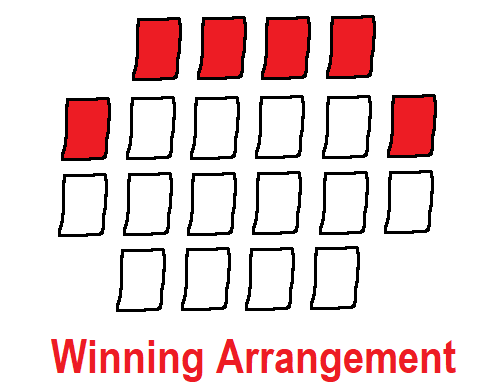
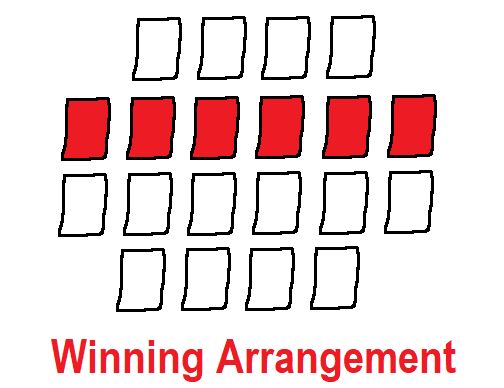
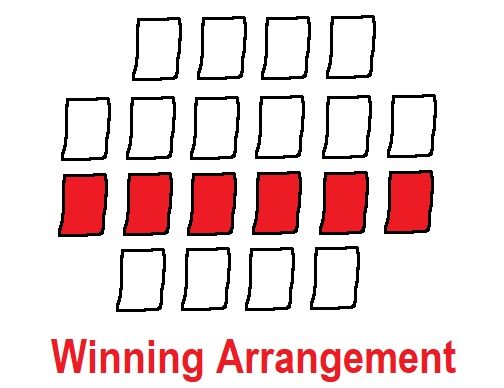
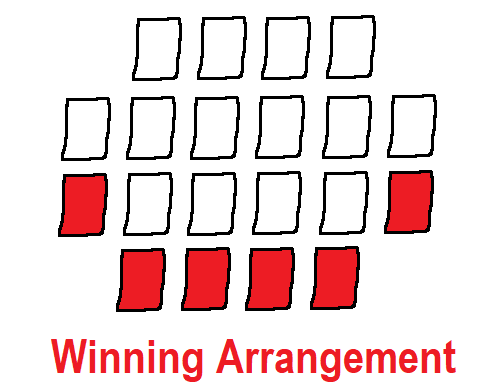
¶ For 10 players
